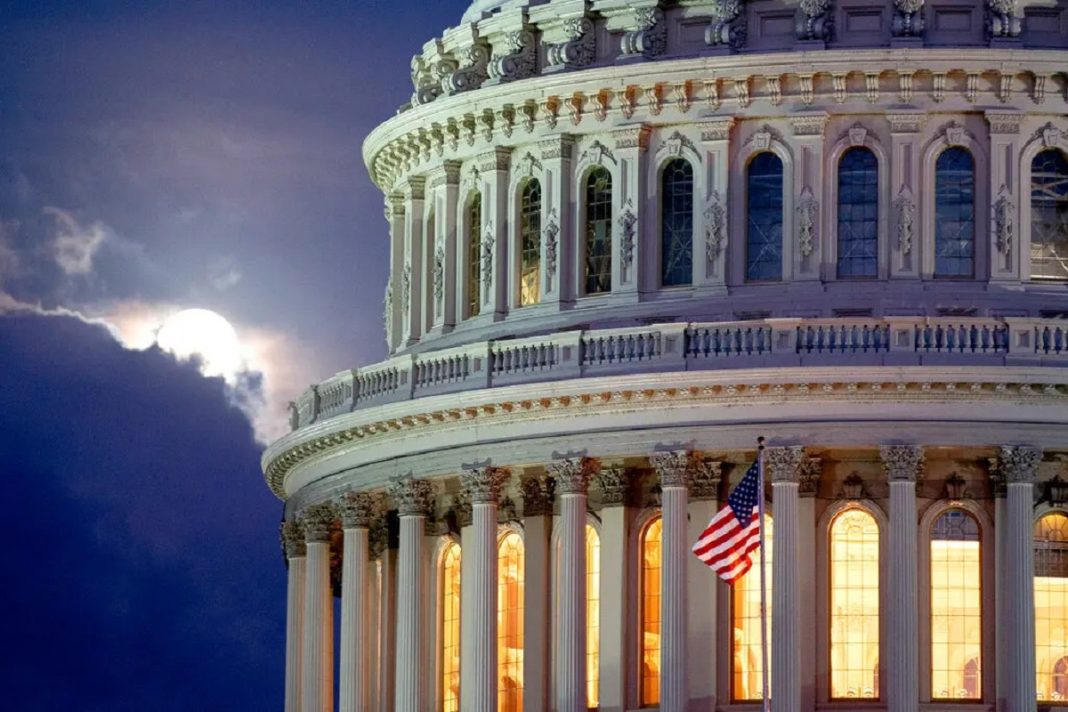Every Republican senator except Sen. Rand Paul of Kentucky signed on to a statement Monday directed to President Biden, Democrats and the international community, warning that a “major agreement that does not have strong bipartisan support in Congress will not survive.”
“According to press reports, the Biden administration may soon conclude an agreement with Iran to provide substantial sanctions relief in exchange for merely short-term limitations on Iran’s nuclear program,” the Republican senators wrote.
“By every indication, the Biden administration appears to have given away the store,” they continued, adding that the Biden administration “appears to have agreed to lift sanctions that were not even placed on Iran for its nuclear activities in the first place, but instead because of its ongoing support for terrorism and its gross abuses of human rights.”
“The nuclear limitations in this new deal appear to be significantly less restrictive than the 2015 nuclear deal, which was itself too weak, and will sharply undermine US leverage to secure an actually ‘longer and stronger’ deal,” they said.
“What is more, the deal appears likely to deepen Iran’s financial and security relationship with Moscow and Beijing, including through arms sales,” they added.
Republicans criticized the Biden administration for having “refused to commit to submit a new Iran deal to the Senate for ratification as a treaty, as per its constitutional obligation, or for review under statutory requirements that passed on a bipartisan basis in response to the 2015 deal.”
“Additionally, despite earlier promises to the contrary, the administration has failed to adequately consult with Congress,” they added.
“Republicans have made it clear: We would be willing and eager to support an Iran policy that completely blocks Iran’s path to a nuclear weapons capability, constrains Iran’s ballistic missile program, and confronts Iran’s support for terrorism,” they said.
“But if the administration agrees to a deal that fails to achieve these objectives or makes achieving them more difficult, Republicans will do everything in our power to reverse it,” they continued.
The Republicans added that “unless Iran ceases its support for terrorism, we will oppose removing and seek to reimpose any terrorism-related sanctions. And we will force the Senate to vote on any administration effort to do so.”
“We strongly urge the administration, our Democrat colleagues, and the international community to learn the lessons of the very recent past,” they said.
“A major agreement that does not have strong bipartisan support in Congress will not survive,” they continued.
However, questioning Republicans, an administration official asked “specifically” what “they would do to prevent Iran from getting a nuke since a maximum pressure campaign did not work.”
A senior Republican congressional aide close to the GOP push on the Iran deal told Fox News that the Iranian government “only started rushing toward a nuclear weapon after Biden was elected.”
Tehran denies seeking nuclear weapons, stressing it wants to master nuclear technology for peaceful purposes.
“Not even the Biden administration disputes that timeline, even though they hope no one notices,” the aide said, adding, “Republicans want a return to the maximum pressure sanctions campaign, which sent Iran’s economy into a death spiral, backed by a credible military threat in case they try to cross the finish line.”
The Joint Comprehensive Plan of Action (JCPOA) was inked by Iran and six world powers in 2015. Under the deal, Tehran agreed to put limits on certain aspects of its nuclear activities in exchange for the removal of draconian international sanctions imposed against the country.
In 2018, however, the US, under President Donald Trump, pulled out of the pact and reinstated sanctions under the so-called ‘maximum pressure campaign’ against Tehran, effectively depriving Iran of the deal’s benefits by forcing third parties to stop doing business with Iran.
Iran remained patient for an entire year, after which it began to take incremental steps away from its nuclear obligations, especially after Europeans failed to salvage the deal under the US pressure. Tehran’s decision to ramp up its nuclear activities prompted other parties to revive talks.
Iran and the five remaining parties to the JCPOA — Germany, Britain, France, Russia and China — began the talks in the Austrian capital in April with the aim of removing the sanctions after the US voiced its willingness to return to the agreement.
Iran insists that the talks must lead to the removal of all American sanctions that were imposed against Tehran following Washington’s unilateral withdrawal from the landmark agreement in May 2018. Tehran has also demanded credible guarantees that Washington will not abandon the deal again
